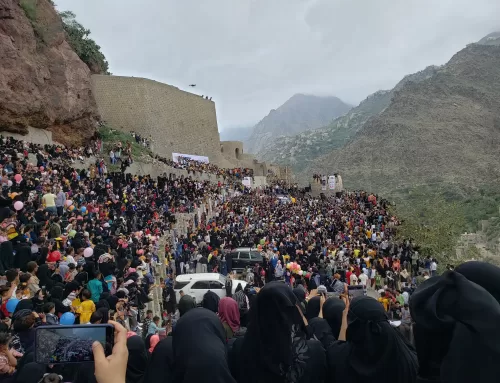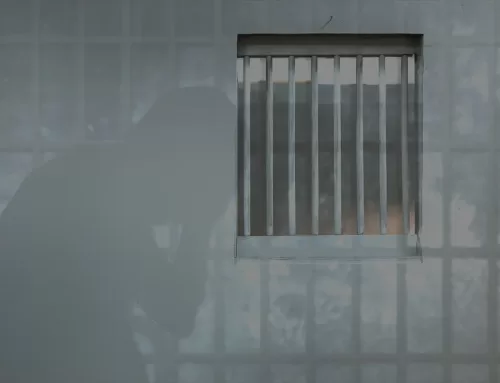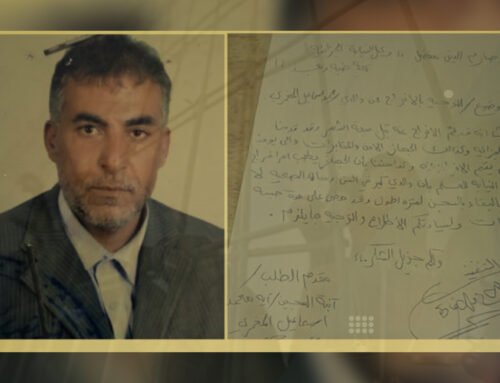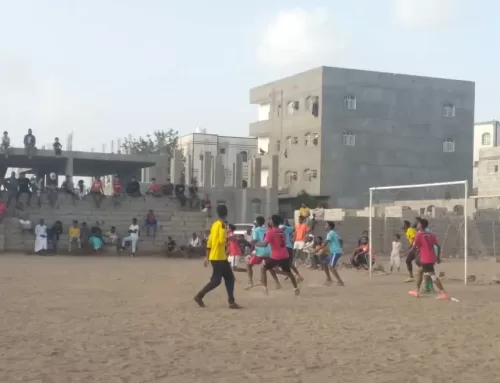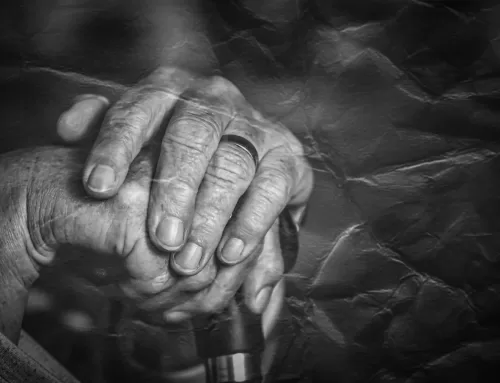The 10-km distance has turned into 62-km
Manal Alkadasi
21 June 2021
Traveling from Taiz to Sana’a requires prior coordination, especially since you live in the center of a besieged city except from its southwest direction.
In the beginning, it is necessary to communicate with more than one taxi driver, or what is called in Taiz (Tabbal), to check the possibility of exiting the city, especially since it is no longer as easy as it was before the war. The distance from Taiz city to Al-Hawban used to take 10 to 15 minutes at the most. Nowadays, it takes a whole day time for the drivers to go there, after which they need to take a break before they head for another city on the next day or drive 62 Km back to Taiz city on the same day.
Accordingly, you should make your communications with the driver, as soon as you are notified of the need to travel, so as to know when they are going to Al-Hawban, and whether he is going to Sana’a after that, or he will just stay in Al-Hawban area.
The means of transportation that would take me was a TOYOTA “Hiace” bus. The bus came at 3:00 am to pick me up to Al-Hawban. After that, the driver began collecting passengers from different places within the city. All this time, including some waiting-minutes at every passenger (s) for arranging their luggage on the roof of the bus, and arranging seats for women, while I was on the bus before we head to Al-Hawban.
At 06:00 am, the bus headed south, instead of heading north in normal times, namely, towards Wadi Al-Dhabab and Najd Qaseem. Its first stop for breakfast took a quarter of an hour. Then, it moved up the difficult rugged road of Al-Aqrodh area.
Al-Aqrodh road is a rugged, mountainous and dirt road. It is about 35 kilometers away from Taiz city. People are forced to use this road by their vehicles as an alternative to enter to and exit from the city of Taiz that has been sieged by Ansar Allah group (Houthis), who blocked the main roads to the city, since early May 2015.
No one knows the suffering of travelers in Taiz, except for those who tried this narrow ascending twisting road that makes people sick and dusty, let alone the longtime stops on narrow rocky places, due to the narrowness of the road, waiting the oncoming vehicles pass.
The bus stopped every quarter to half an hour, due to the large trucks carrying basic food stuff to city. In a more tragic circumstance, a long line of vehicles stops for an hour or more, until some the drivers volunteer to organize their passage and clear the way in a long and complicated manner. Then comes the turn of the sun, which is near the middle of the sky. It is what everyone tried to avoid when they got up early, the scorching sun.
On the road, you will watch how heavy and loaded trucks pass through narrow and sloping areas, so much as that you may think that they will overturn on the vehicles next to them, or at least touch them.
This hardship is compounded by the proliferation of checkpoints, some of which belong to Ansar Allah group (Houthis) besieging the city, and others belong to the internationally recognized Yemeni government forces, as they have shared the road equally between them.
Despite the hostility that separates the two parties, they have some practices in common, such as the financial extortion of passers-by. In addition, there are also villagers who considered the passage of travelers through their mountainous villages as an opportunity to gain money through begging in a different way, as they pretend to repair some potholes and dirt speed bumps, in return for an expected financial return.
Children with prominent features and remarkable beauty, however, life is too cruel to let a person maintain their beauty and brilliance, to become a kind of pallor, which gives them supposed years beyond the few that surprised them.
Finally, you reach the asphalt road at about 11:00 a.m., at the best. You start to catch your breath, adjust your seat, and modify your appearance that has been messed with by a ruthless road.
In this part of the journey, nothing catches one’s attention, as the ground becomes flat again after hours of rolling and swaying. A comfort enhanced by the melodious voice of Ayoub Tarish emanating from the bus recorder, to cast on the soul a burst of love for this country despite its misery!
Here, the distance to the fertile Ibb governorate (north of Taiz) has been traveled. Everything there seems fine, except for the security checkpoints of Ansar Allah arm group (Houthis) at the main entrances to the cities, and the repeated questions of the checkpoint personnel, “Where are you coming from?” and “Where are you going?”, which have become ordinary.
We continue traveling up to Sanaa. The gunmen at Sana’a entrance checkpoints are firmly strict. There, they stopped the bus and searched my bags and stuff. Perhaps, my coming as a woman on my own “without a mahram” may have raised their suspicions. It took me five minutes, before they let me in the bus again. The time was approaching 8:00 p.m. while we were on the outskirts of Sana’a. Then, I sighed, “Finally we arrived.”
Before the war, if I left the city of Taiz at dawn, it was assumed that Sana’a would receive me in the morning. Yet, it is 8:00 pm now. As the city is large and crowded, the bus will take two hours to drop the passengers at their destinations, which means I will arrive to the house, where I am going to stay during my work mission in Sana’a, at 10:30 pm. My joints feel stiff and inflexible like concrete iron, and my feet are hard to straighten out.



